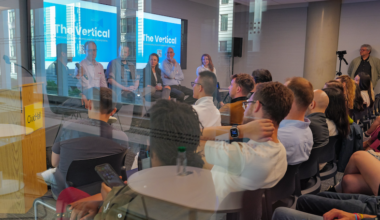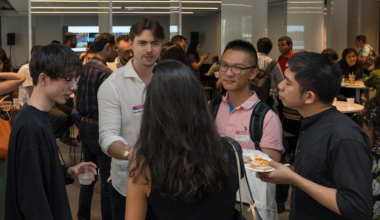Created by four international co-founders, VRAL Games debuted at the Game Developers Conference in San Francisco less than three months ago.
Their first VR motorcycle racing game, VRider SBK, offers users official World Superbike Championship racetracks, global leaderboards, and an online multiplayer community.
Every day since its release, the adrenaline-pumping race experience reaches the ‘top selling’ list.
Rodolfo Saccoman, the CEO and co-founder, says Miami-based VRAL is now on the hunt for new amazing games to launch. “We welcome game developers globally to contact us,” he added.
With his team, Saccoman seeks to create the next wave of immersive games that leverage extended reality (XR) technologies to push the boundaries of gaming.
“We call this concept motion-wellness technology, which means that every game that comes out of our factory makes the experience as enjoyable for as many people as possible,” explains Saccoman.
The source of creativity
Born in São Paulo, Brazil, Saccoman came to the U.S. when he was 17 to study at Cornell University. His business partners Joe-Victor Behar, Massimo Colella, and Giovanni Bazzoni were born in Italy and have years of gaming experience.
Behar and Colella managed a network of 500 stores across Europe for GameStop, the world’s largest gaming retailer. As an early pioneer in gaming, Bazzoni led the charge in developing racing games for console platforms, and later for mobile.
“Our generation was not born with cell phones in our hands. Rather, we were in our early 20s when we got our first one,” said Saccoman. “Part of the bet now with immersive technologies is that younger people will want a combination of cellphone and virtual reality capabilities.”
Saccoman points to his home city of São Paulo as his wellspring of “creativity,” adding that the city’s concrete jungle “is very tough, but there is a lot of inventiveness there because of the necessity.”
His parents also had an impact on his choice of gaming as a career. Saccoman’s mother was an avid reader and introduced him to Don Quixote by Miguel de Cervantes and The Alchemist by Paulo Coelho.
Both novels feature imaginary figures who were inspired to great feats while letting their imaginations run free.
Leading innovation
After graduating Cornell University Saccoman joined the marketing team at the Breakers Hotel in Palm Beach, Florida. “It was about then that the Internet became something of value,” he says. “I led innovation for the Breakers for ten years, and I built all of their e-commerce.”
Saccoman soon earned his MBA at the University of Miami, and worked at Morgan Stanley as a financial adviser. By then, he wanted to launch his own business and dived into AI, far before it became hyped.
This decision set Saccoman on the path of a serial tech entrepreneur, leading to two successful AI exits.
His first startup, My Therapy Journal, is the world’s first journaling platform with early traces of AI based on cognitive behavior therapy. Later, Saccoman created the large AI-powered, real time analytics data company, AdMobilize, and developed AI enabled hardware with another company, Matrix Labs.
“I think AI will enable us to set up businesses and automation very quickly, and that’s going to be amazing because if you package all of this easily, you enable people to make things much faster anywhere in the world. I love it.”
Saccoman believes AI is a superpower that has yet to transform gaming. “In no way do I see AI as a threat,” he said. “I know that some parts of it are scary, but the Internet in the beginning was the same. That’s why I see it as a tool.”
His team is being intentional in integrating advancements in GenAI with gameplay, because it will create “dynamic and unpredictable gaming environments.”








